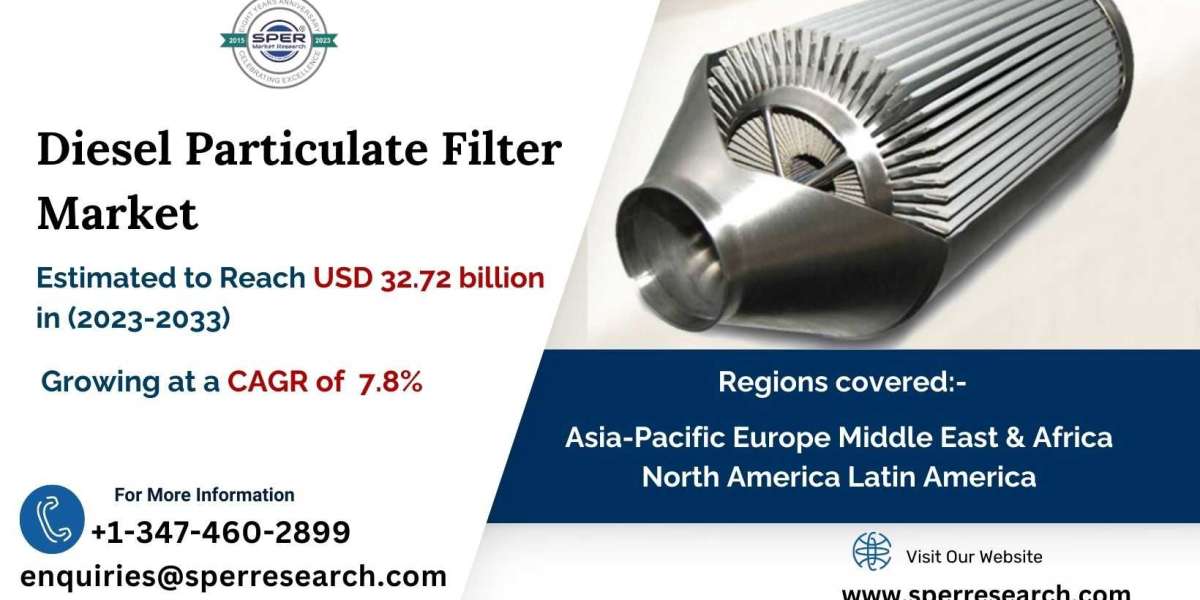An exhaust aftertreatment tool that helps to capture particulate matter, such as ash and soot, is known as a diesel particulate filter, or DPF. Typically, a DPF uses a substrate composed of ceramic material shaped into a honeycomb pattern. These filters are thought to be perfect for removing different kinds of pollutants and emissions from the car. They also help reduce the amount of smoke and carbon emissions. Additionally, these filters aid in guaranteeing adherence to extremely stringent emission requirements. DPF's particle deposition technique makes it perfect for controlling the solid portion of diesel particles. DPF uses a variety of filtration mechanisms, including as flow line interception, diffusional deposition, and inertial deposition, to collect particle emission.
According to SPER market research, ‘Diesel Particulate Filter Market Size- By Substrate Type, By Regeneration Catalyst, By Regeneration Process, By Equipment Type, By Vehicle Type - Regional Outlook, Competitive Strategies and Segment Forecast to 2033’ state that the Global Diesel Particulate Filter Market is estimated to reach USD 32.72 billion by 2033 with a CAGR of 7.8%.
One of the main causes propelling the global adoption of strict emission regulations and firms' efforts to create emission-free automobiles is the market expansion for diesel particulate filters. There are two sections to these regulations: one for on-road vehicles and the other for off-road vehicles. The market is also influenced by the increase in preference for diesel engines over gasoline engines due to these vehicles' greater fuel economy, robustness, and dependability as well as a favourable fuel tax environment. The market is growing more quickly due to the rise in luxury and heavy vehicle demand as well as the rise in diesel-powered vehicles. Additionally, the industry is expanding thanks to a rise in passenger car sales brought on by consumers' choice for economical automobiles.
However, it is anticipated that worries about DPF theft and a shift in light-duty vehicles' powertrain preferences toward gasoline and hybrid systems will hinder market expansion. Moreover, problems with DPF commercialization and emission standard harmonization are anticipated to pose a challenge to the diesel particulate filter market throughout the projection period. Another factor impeding the growth of the diesel particulate filter market is technological adaption. Ongoing innovation and investment are needed to provide compatibility with different engine designs and keep up with changing emission requirements.
Request For Free Sample Report @ https://www.sperresearch.com/report-store/diesel-particulate-filter-market.aspx?sample=1
Because of the rigorous lockdowns and social distancing measures implemented to stop the virus's transmission, the COVID-19 had a detrimental effect on the diesel particulate filter market. The demand for diesel particulate filters was hampered by poor consumer confidence, a partial business shutdown, and economic uncertainty. During the pandemic, the supply chain experienced difficulties and logistics operations were delayed. However, because of the relaxation of regulations, it is anticipated that the market for diesel particle filters would pick up steam in the post-pandemic environment.
Diesel Particulate Filter Market Key Players:
With the biggest market share, the Europe region dominated the global market. The region of Asia-Pacific is predicted to grow at the fastest rate. Among the major players are Bosal, Denso, Johnson Matthey, Tenneco, Eberspaecher, Faurecia, and Continental.
For More Information, refer to below link:-
Diesel Particulate Filter Market Outlook
Related Reports:
Follow Us –
LinkedIn | Instagram | Facebook | Twitter
Contact Us:
Sara Lopes, Business Consultant – USA
SPER Market Research
+1-347-460-2899



